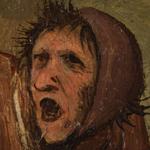sunlay schrieb:
Ich habe eine Seite der Timeline im TSBD gefunden, das schöne auch noch mit Quellenhinweisen.
 Africanus schrieb:Schön und gut, aber wo ist nun Dein Argument?
Africanus schrieb:Schön und gut, aber wo ist nun Dein Argument?
Das Argument kennst Du bereits aus vorherigen Posts dazu von mir.
Man kann an der Timeline doch erkennen, dass Oswald zu mehreren Zeiten von einigen Menschen im TSBD gesehen wurde, im besonderen auch wenige Minuten vor bzw. nach dem Attentat. Vorher trank er auf einem Hocker sitzend ne Coke, später machte er keinen auffälligen Eindruck, als er auf den Polizisten und den Chef des TSBD traf. In einem vorherigen Post führte ich das näher aus.
Für mich ist das Verhalten Oswalds in diesem Gebäude nicht stimmig mit dem, was er gemacht haben soll. Wenn er wirklich der alleinige Attentäter Kennedy´s ist, warum ist er dann nicht zeitnaher in Position gegangen? Sondern trinkt noch ne Cola oder unterhält sich mit seinem Kollegen?
Der Präsident und sein Anhang hatten an diesem Tag eine Verspätung und kamen erst 20 Minuten später als geplant auf dem Flugplatz Lovefield in Dallas an.
Demnach traf die Wagenkolonne auch erst um 12:30 auf der Dealey Plaza ein, ursprünglich war hier 12:10 Uhr als Zeit angesetzt und in Lokalzeitungen veröffentlicht wurden.
Von dieser Zeit musste also auch Oswald ausgehen!
Um 12:00 Uhr unterhält sich Eddie Piper (ein Kollege) kurz mit Oswald.
Um ca. 12:20 Uhr sieht Carolyn Arnold, eine schwangere Kollegin, wie Oswald neben dem Cola-Automaten im 2. Stock des Lunchrooms auf einem Hocker sitzt.
Um ca. 12:32 Uhr – ca. 2 Minuten nach den Schüssen - trifft der Polizist Marion L. Baker auf den im 2. Stock sitzenden Lee Harvey Oswald. Roy Truly der Chef des TSBD ist ebenfalls dabei.
Die Kirchenbeauftragte Mrs. R.A. Reid, sieht wenige Minuten später, Oswald im 2.Stock entlang laufen, mit einer Cola in der Hand. (Oswald hatte echt Durst)
Hier ziehe ich das Argument, einer abnormalen Handlungsweise heran. Ein Killer der vorsätzlich den Präsidenten ermorden will, verhält sich anders und hat auch keine Ambitionen zur Hellseherei, um wissen zu können, dass der Präsident erst 20 Minuten später als offiziell herausgegeben, auf der Dealey Plaza eintrifft. Er hätte demnach um etwa 12:00 bereits im Schützennest sein müssen, da Kennedy 10 Minuten später ankommen würde.
Oder, wenn er von der Verspätung durch einen Komplizen, Radio, Mitarbeiter erfahren hätte, hätte Oswald mit Sicherheit nicht um 12:20 Uhr noch auf dem Hocker sitzend eine Cola getrunken, sondern wäre am Fenster im oberen Stockwerk in Position gegangen. Er konnte nicht auf die Minute genau wissen, wann der Präsident am Fenster vorbeifährt. Da Oswald aber zu keinem Zeitpunkt mit einem tragbaren Radio, Kopfhörern oder sonstigem gesehen wurde, musste er doch ein Zeitpolster am Fenster haben, um den Präsidenten auch wirklich aufs Korn nehmen zu können.
Er rennt doch nicht auf Verdacht in eines der oberen Stockwerke in der Hoffnung, den Präsidenten zu erwischen. Das wäre Gestocher im Nebel und auf Zufall gestützt. Das Verhalten eines Killers ist mit so einer Vorgehensweise nicht vereinbar. Wenn man das Ziel hat den Präsidenten zu töten und in etwa weiß wann die Limousine auftaucht, verschafft man sich einen zeitlichen Rahmen um sein Ziel erfüllen zu können und beabsichtigt nicht Gefahr zu laufen, das Ziel zu verpassen, weil man zu spät im Schützennest zur Tat geschritten ist.
Ich weiß ihr kommt wieder mit der Strohmann-Mafia an der ich hänge und regelmäßig kontaktiere und bediene. Aber ich empfinde Oswalds Handlungen im TSBD als nicht passend zu einem Killer mit solch einem klaren Ziel, bei einmaliger Gelegenheit.
Groucho schrieb: Ich glaube, eine der Kopien, bin aber nicht sicher.






